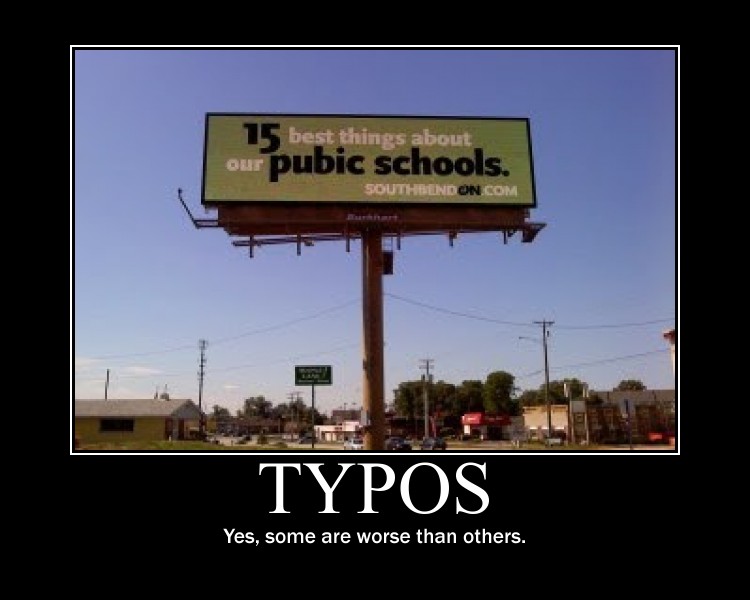What's the big deal about tpyos?
 Monday, July 2, 2012 at 06:44AM
Monday, July 2, 2012 at 06:44AM Hugh Howey, author of the Wool series* of science fiction novels, has an interesting take on typographical errors in his post, Happy INIEpendence Day!:
We all know this person, right? You send out a quick Tweet or Facebook update, and some friend informs you that you’ve split an infinitive, left a modifier dangling, ignored the necessity of the Oxford comma, or some other rule you didn’t learn in grade school and you sure as hell don’t remember now. You might have as an excuse that you were typing on your cramped cell phone or that you honestly don’t care about these rules. My rationale is normally that I goofed. Because even though I make a living at writing, I don’t know much about it. I just have ideas that I want to communicate, and I rely on spellcheck to make this as pain-free for the reader as possible.
Because really, what is language for? When you distill it right down to its essence, it’s all about the teleportation of ideas and imaginings, right? Think about how strange this process is: I see something in my mind, or I have a thought, and by emitting a strange series of sounds (or by drawing a string of symbols), I can implant into your brain what was previously in mine. Bizarro. And yet we do it every day and take it completely for granted.
If language is meant to communicate, why do we get in an uproar when it does its primary job, but with slight imperfections? In most cases, the intent of an error-filled sentence is clear. Heck, you can leave all the vowels out of this entire blog post and most people would still be able to read it. The Idea-Teleporter that we call “language” can be missing quite a few bolts and springs and still do its job.
And yet, many people expect perfection out of a tool that does not require it. It’s like wanting a car that not only delivers us to our destination, but emits no road noise, has plenty of cup holders, and will not break down. Ever. It can’t simply do what it was meant to do, it has to do it without error or a scratch. I can’t think of many things that are held to this standard, but the written word seems to be one of them.
Even as former English teacher and something of a grammar snob, I appreciate Howey's attitude. When I taught writing, I suggested to my students that they pay attention to the mechanics of writing because punctuation, spelling, sentence construction, and other "rules" will help them make their meaning clear - and poor mechanics can distort or hide a message. While I am always embarrassed when I find a careless mistake in my writing (and I have never re-read anything I've written without wanting to make at least one grammatical change), I don't know how much the missing word, extra comma, or wrong homonym really stands in the way of the meaning.
The worst thing about grammar nitpickers is that others, fearing their criticism, may not be willing to publicly share their ideas. And while this is sad for adults, it's tragic when it happens to kids.
Oh, there is a typo in the title of this post. Can you find it?
* Anyone who is a fan of dystopian science fiction should give Wool a shot. Independently published, Howey had a great style, sympathetic characters, and great tension. And buying it for the Kindle is less than the cost of a used paperback.










Reader Comments (1)
Yes, some typos are definitely worse than others. As a trade show display company, making a glaring typo like this is just not acceptable.